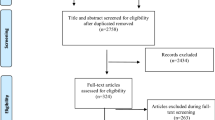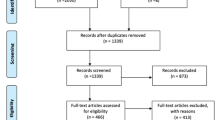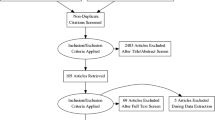Abstract
Parents’ perceptions of their children’s mental health—including recognition of specific mental health problems as such, and their beliefs about the causes and treatments for the problems—have an important impact on child mental health. This study investigated child mental health literacy among Cambodian and Vietnamese mothers. A cross-sectional study was conducted among 357 mothers in Hanoi, Vietnam, and Pnom Penh and Kampong Speu, Cambodia. The Child Mental Health Literacy Questionnaire was used to assess mothers’ mental health literacy, in particular, their ability to correctly identify different mental health disorders, and their understanding of causes of the mental health problems, and about the utility of different treatments. The overall level of mental health literacy among mothers in these two countries was low, with the proportions of mothers able to correctly identify different mental health problems ranging from 0.17 (Oppositional Defiant Disorder) to 0.35 (Trauma-related). Biological causes and adverse experiences were the most frequently selected causes of generic mental health problems. Medication, parent training and family counseling were the three most positively rated forms of treatment for mental health problems in general. Although Vietnam and Cambodia are geographic neighbors, varying results across these countries appear to reflect their different historical backgrounds. For instance, the largest difference between the two countries was for trauma-related problems, which may be related to the Cambodian history of genocide. Findings such as this demonstrate the need for contextually developed and focused public health intervention for mothers of children to improve their mental health literacy.
Similar content being viewed by others
Availability of data and materials
The data analyzed for this paper are available from the authors upon reasonable request meeting institutional guidelines.
Abbreviations
- CMHLQ:
-
Child Mental Health Literacy Questionnaire
- GLM:
-
General linear models
- GLIM:
-
Generalized linear model
- HIC:
-
High-income countries
- LMIC:
-
Low- and middle-income countries
References
Abera, M., Robbins, J. M., & Tesfaye, M. (2015). Parents’ perception of child and adolescent mental health problems and their choice of treatment option in southwest Ethiopia. Child and Adolescent Psychiatry and Mental Health, 9(1), 40.
Alfredsson, M., San Sebastian, M., & Jeghannathan, B. (2017). Attitudes towards mental health and the integration of mental health services into primary health care: a cross-sectional survey among health-care workers in Lvea Em District, Cambodia. Global Health Action, 10(1), 1331579.
Cartwright-Hatton, S., McNicol, K., & Doubleday, E. (2006). Anxiety in a neglected population: Prevalence of anxiety disorders in pre-adolescent children. Clinical Psychology Review, 26(7), 817–833.
Chow, S. C., Shao, J., & Wang, H. (2008). Sample size calculations in clinical research. Boca Raton, FL: Taylor & Francis Group. ISBN 978-1-58488-982-3.
Cohen, Jacob. (1988). Statistical power analysis for the behavioral sciences. Mahwah, NJ: Lawrence Erlbaum. ISBN 0-8058-0283-5.
Coxe, S., West, S. G., & Aiken, L. S. (2013). Generalized linear models. In T. D. Little (Ed.), The Oxford handbook of quantitative methods: Statistical analysis (Vol. 2, pp. 26–51). New York City: Oxford University Press. ISBN 0-19-993489-4.
Dahlberg, K. M., Waern, M., & Runeson, B. (2008). Mental health literacy and attitudes in a Swedish community sample—Investigating the role of personal experience of mental health care. BMC Public Health, 8(1), 125.
Dang, H.M., Lam, T.T., Dao, A. & Weiss, B. (2020). Mental health literacy at the public health level in low and middle income countries: An exploratory mixed methods study. PLoS ONE, Manuscript under review.
Dang, H. M., Weiss, B., Lam, T., & Ho, H. (2018). Mental health literacy and intervention program adaptation in the internationalization of school psychology for Vietnam. Psychology in the Schools, 55(8), 941–954.
der Ham, Van, Wright, P., Van, T. V., Doan, V. D., & Broerse, J. E. (2011). Perceptions of mental health and help-seeking behavior in an urban community in Vietnam: An explorative study. Community Mental Health Journal, 47(5), 574–582.
Furnham, A., & Hamid, A. (2014). Mental health literacy in non-western countries: A review of the recent literature. Mental Health Review Journal, 19(2), 84–98.
Gallup International. (2015). Religion, race and culture: Gallup International Association opinion poll. Retrieved from https://www.gallup-international.com/surveys/religion-race-culture/ June 6, 2020.
Gong, A. T., & Furnham, A. (2014). Mental health literacy: public knowledge and beliefs about mental disorders in mainland China. PsyCh Journal, 3(2), 144–158.
Greenberg, R. P., Constantino, M. J., & Bruce, N. (2006). Are patient expectations still relevant for psychotherapy process and outcome? Clinical Psychology Review, 26(6), 657–678.
Hoza, B., Johnston, C., Pillow, D. R., & Ascough, J. C. (2006). Predicting treatment response for childhood attention-deficit/hyperactivity disorder: Introduction of a heuristic model to guide research. Applied and Preventive Psychology, 11(4), 215–229.
Ismail, R. (2016). Southeast Asian culture and heritage in a globalising world: Diverging identities in a dynamic region. New York City, NY: Routledge.
Jegannathan, B., Kullgren, G., & Deva, P. (2015). Mental health services in Cambodia, challenges and opportunities in a post-conflict setting. Asian Journal of Psychiatry, 13, 75–80.
Jenkins, R., Baingana, F., Ahmad, R., McDaid, D., & Atun, R. (2011). Social, economic, human rights and political challenges to global mental health. Mental Health in Family Medicine, 8(2), 87.
Jorm, A. F. (2000). Mental health literacy: Public knowledge and beliefs about. British Journal of Psychiatry, 177(396), 317–327.
Jorm, A. F. (2012). Empowering the community to take action for better mental health. American Psychologist, 67(3), 231–243.
Kazdin, A. E. (2008). Parent management training: Treatment for oppositional, aggressive, and antisocial behavior in children and adolescents. Oxford: Oxford University Press.
Kramer, E. J., Kwong, K., Lee, E., & Chung, H. (2002). Cultural factors influencing the mental health of Asian Americans. Western Journal of Medicine, 176(4), 227.
Kutcher, S., Bagnell, A., & Wei, Y. (2015). Mental health literacy in secondary schools: A Canadian approach. Child and Adolescent Psychiatric Clinics of North America, 24(2), 233–244.
Loo, P. W., Wong, S., & Furnham, A. (2012). Mental health literacy: A cross-cultural study from Britain, Hong Kong and Malaysia. Asia-Pacific Psychiatry, 4(4), 113–125.
Malhotra, S., & Padhy, S. K. (2015). Challenges in providing child and adolescent psychiatric services in low resource countries. Child and Adolescent Psychiatric Clinics of North America, 24(4), 777–797.
Maughan, B., Rowe, R., Messer, J., Goodman, R., & Meltzer, H. (2004). Conduct disorder and oppositional defiant disorder in a national sample: Developmental epidemiology. Journal of Child Psychology and Psychiatry, 45(3), 609–621.
Mendenhall, A. N., & Frauenholtz, S. (2015). Predictors of mental health literacy among parents of youth diagnosed with mood disorders. Child and Family Social Work, 20(3), 300–309.
Miller, J. E., & Rodgers, Y. V. (2009). Mother’s education and children’s nutritional status: New evidence from Cambodia. Asian Development Review, 26(1), 131–165.
Ministry of Health Kingdom of Cambodia. (2008). Health strategic plan 2008–2015. Phnom Penh: Ministry of Health Kingdom of Cambodia.
MOET. (2016). Plan for life skills and civic education for students from 2015–2020 (Decision 410/QĐ-BGDĐT dated 04 February 2016). Hanoi: MOET.
Morawska, A., Winter, L., & Sanders, M. R. (2009). Parenting knowledge and its role in the prediction of dysfunctional parenting and disruptive child behaviour. Child: Care, Health and Development, 35(2), 217–226.
Oh, E., Mathers, M., Hiscock, H., Wake, M., & Bayer, J. (2015). Professional help seeking for young children with mental health problems. Australian Journal of Psychology, 67(3), 187–195.
Pescosolido, B. A., Jensen, P. S., Martin, J. K., Perry, B. L., Olafsdottir, S., & Fettes, D. (2008). Public knowledge and assessment of child mental health problems: Findings from the National Stigma Study-Children. Journal of the American Academy of Child and Adolescent Psychiatry, 47(3), 339–349.
Reavley, N. J., & Jorm, A. F. (2011). Recognition of mental disorders and beliefs about treatment and outcome: Findings from an Australian national survey of mental health literacy and stigma. Australian and New Zealand Journal of Psychiatry, 45(11), 947–956.
Reavley, N., Too, T., & Zhao, M. (2015). National surveys of mental health literacy and stigma and national survey of discrimination and positive treatment: A report for the Mental Health Commission of NSW. Sydney: NSW Mental Health Commission.
Reinke, W. M., Stormont, M., Herman, K. C., Puri, R., & Goel, N. (2011). Supporting children’s mental health in schools: Teacher perceptions of needs, roles, and barriers. School Psychology Quarterly, 26(1), 1–13. https://doi.org/10.1037/a0022714.
Rowe, R., Costello, E. J., Angold, A., Copeland, W. E., & Maughan, B. (2010). Developmental pathways in oppositional defiant disorder and conduct disorder. Journal of Abnormal Psychology, 119(4), 726–738.
Shanley, D. C. (2009). Understanding Parents’ Perceptions of Their Child’s Mental Health Problem: Development of a parent-report measure. (Doctor of Philosophy), The University of Western Ontario, Ontario, Canada. Available from Proquest.
Sue, D., Sue, D. W., Sue, S., & Sue, D. M. (2015). Understanding abnormal behavior (11th ed.). Wadsworth: Cengage Learning.
Thac, D., Pedersen, F. K., Thuong, T. C., Lien, L. B., Anh, N., Thi, N, & Phuc, N. N. (2016). South Vietnamese rural mothers’ knowledge, attitude, and practice in child health care. BioMed Research International, 2016.
Thai, Q. C. N., & Nguyen, T. H. (2018). Mental health literacy: knowledge of depression among undergraduate students in Hanoi, Vietnam. International Journal of Mental Health Systems, 12(1), 19.
Them, T. N. (2001). Discovering the identity of vietnamese culture: Typological-systematic view. HCMC, Vietnam: HCMC Publishing house.
Tully, L. A., Hawes, D. J., Doyle, F. L., Sawyer, M. G., & Dadds, M. R. (2019). A national child mental health literacy initiative is needed to reduce childhood mental health disorders. Australian and New Zealand Journal of Psychiatry, 53(4), 286–290.
Umpierre, M., Meyers, L. V., Ortiz, A., Paulino, A., Rodriguez, A. R., Miranda, A., et al. (2015). Understanding Latino parents’ child mental health literacy: Todos a bordo/all aboard. Research on Social Work Practice, 25(5), 607–618.
UNICEF, MOLISA, & ODI. (2017). Mental Health and Psychosocial Wellbeing among Children and Young People in selected provinces and cities in Viet Nam. Retrieved from Hanoi: https://www.unicef.org/vietnam/sites/unicef.org.vietnam/files/2018-07/StudyonMentalHealth-FullReport_ENG.pdf.
United Nations Development Programme. (Ed.). (2016). Human development for everyone. Briefing Note For Countries On The 2016 Human Development Report.
World Bank. (2018). GNI per capita. Downloaded from https://data.worldbank.org/indicator/NY.GNP.PCAP.CD June 6, 2020.
World Health Organization. (2012). Adolescent mental health: Mapping actions of nongovernmental organizations and other international development organizations. Geneva: WHO.
Yip, K. S. (2005). Chinese concepts of mental health: Cultural implications for social work practice. International Social Work, 48(4), 391–407.
Yu, Y., Liu, Z. W., Hu, M., Liu, X. G., Liu, H. M., Yang, J. P., et al. (2015). Assessment of mental health literacy using a multifaceted measure among a Chinese rural population. British Medical Journal Open, 5(10), e009054.
Acknowledgements
This research was funded in part by Vietnam National University, Hanoi (VNU) under project number QG.16.61, and by the United States National Institutes of Health grant from the Fogarty International Center D43-TW009089. Funding agencies had no involvement in data analysis, report writing, or the decision to publish the manuscript.
Author information
Authors and Affiliations
Contributions
All authors contributed to the study conception and design development. Material preparation, data collection and data analysis were performed by HMD, RP, TD, AP, and BW. The first draft of the manuscript was written by HMD and BW, with all authors providing input on subsequent versions of the manuscript. All authors read and approved the final manuscript.
Corresponding author
Ethics declarations
Conflict of interest
All authors declare that they have no conflicts of interest or competing interests.
Ethics Approval
This study was conducted in accordance with the principles of the Declaration of Helsinki. Ethics approval was granted by the Institutional Review Boards at Vietnam National University and at the Royal University of Phnom Penh.
Informed Consent
Informed consent was obtained from all participants included in the study.
Additional information
Publisher's Note
Springer Nature remains neutral with regard to jurisdictional claims in published maps and institutional affiliations.
Rights and permissions
About this article
Cite this article
Dang, HM., Phan, R., Weiss, B. et al. Child Mental Health Literacy Among Vietnamese and Cambodian Mothers. Psychol Stud 66, 62–72 (2021). https://doi.org/10.1007/s12646-020-00590-8
Received:
Accepted:
Published:
Issue Date:
DOI: https://doi.org/10.1007/s12646-020-00590-8




